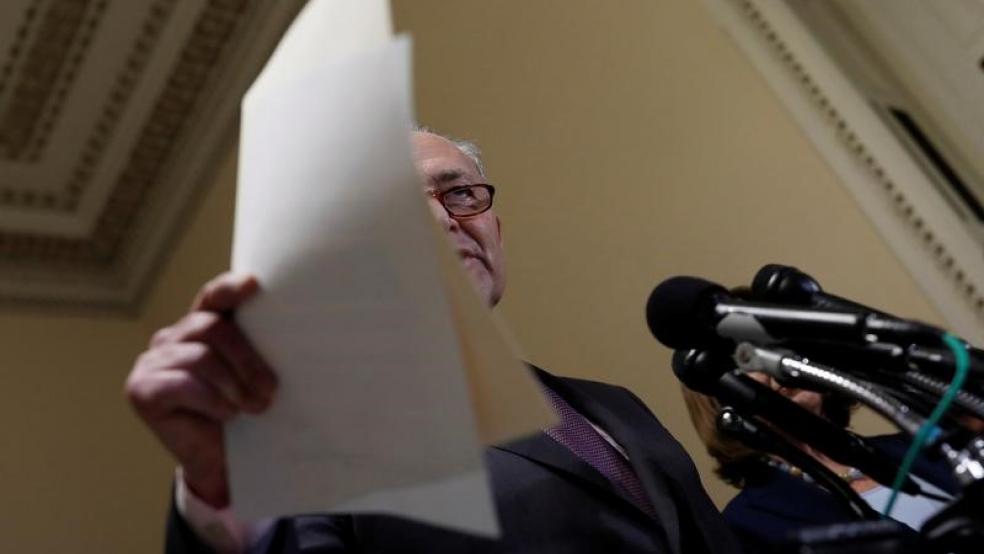Congress typically legislates in short, fruitful bursts between long periods of dormancy. This week kicks off a short stretch where we will learn whether we’re in a moment of activity or inertia, and just what the next phase in the fight over health care will be. But whether the GOP bill survives this week or not, liberal defenders of Obamacare will have to remain vigilant.
The Senate has not and may never find a way to dispatch the Republican health care bill. Here’s where we’re at: Two Republican senators — Maine’s Susan Collins and Nevada’s Dean Heller — are reportedly hard “nos” because the legislation repeals too much. Another, Kentucky’s Rand Paul, is a hard no because it repeals too little. That’s enough to scuttle the bill; with a 52-48 majority, Republicans can only afford two dissenters and still overhaul the Affordable Care Act through the majority-vote budget reconciliation process.
Related: The Basic Math Problem Facing Republican Health Care Reform
Utah’s Mike Lee won’t consent to the bill without Ted Cruz’s “consumer freedom” amendment, which would allow insurance companies to sell non-compliant plans on the Obamacare exchanges, as long as they sold compliant plans alongside them. Paul and Cruz have conditioned their votes on inclusion of the amendment as well.
This would bifurcate the market — the sick would need the full benefits in the compliant plans, while the healthy would take the cheaper non-compliant option, making compliant insurance astronomically expensive. That prospect has lost the support of West Virginia’s Shelley Moore Capito. Susan Collins doesn’t support it. Iowa’s Chuck Grassley labeled the amendment a “subterfuge” to get around the requirement to issue insurance to those with pre-existing conditions. So you can’t pass a bill without the Cruz amendment, nor can you seemingly pass one with it.
Plus, rural-state senators have suddenly recognized the impact of the Senate bill on rural hospitals, which could lose millions of dollars in federal support. Around half a dozen rural senators have withheld support.
Mitch McConnell, whose entire history in politics has been one of obstructing rather than advancing progress, will try to hammer out a deal with his entire caucus on Tuesday, using hundreds of billions of dollars to buy votes through funding pet projects. And the president is applying pressure as well. But it’s a long shot. Two GOP senators admitted over the weekend that the bill was likely dead for the year.
Related: Hefty Price Increases Have Stabilized the Obamacare Insurance Market
There are plenty of incentives for Senators to just bag health care amid a packed legislative agenda, which includes passing a budget, raising the debt limit, reauthorizing several must-pass programs and getting to what really amps up Republicans: cutting taxes. The health care bill is mostly a vehicle to cut taxes on the wealthy and corporations anyway, and the GOP initially wanted to pass it first, lowering the baseline for revenue and allowing subsequent bills to cut taxes even further. But at some point, it might dawn on members of Congress to just give up and cut taxes without having to mess with people’s health care, a topic that has derailed many an agenda in Washington.
But health care doesn’t go away if Obamacare repeal falters. McConnell has already suggested that he would have to work with Democrats to shore up the individual market if the Senate bill failed. Insurers have pulled out of several individual markets in recent months, although others have taken their place. Other senators have already reached out to Democrats to find solutions.
President Trump is not on board with the bipartisan approach, saying he would call for a fallback of repeal without a replacement. That’s literally where Republicans were in January, before several of them deemed such an outcome impractical. But conservatives will recoil at any bipartisan proposal aimed at fixing a law they want consigned to the dustbin of history. Even if the Senate managed some compromise to shore up exchanges, House passage is unlikely.
Related: Here’s What a Bipartisan Health Care Deal Might Look Like
There are plenty of ways to use the stacked legislative calendar to improve the health care system. A budget compromise could appropriate cost-sharing payments to insurance companies, a sticky subject that has caused much of the insurer abandonment of the individual market. A bill needed to fund the Food and Drug Administration with user fees on pharmaceutical companies could be a vehicle to attack the high cost of prescription drugs, and dismantle cartels that keep prices for medical devices out of reach. Sadly, conservatives have denounced progress to improve health outcomes in favor of a kamikaze strategy against a law they don’t like. So Republicans are stuck.
Unfortunately, so are those in the individual market, who have no health care options from their employers and too much income to qualify for indigent-care programs. Trump remains a would-be Obamacare saboteur. The Department of Health and Human Services has already degraded the insurance exchanges, making them friendlier to business and more burdensome to customers. And HHS has moved to allow states to opt out of Obamacare rules. If the IRS stops enforcing the collection of tax penalties for not carrying health insurance, known as the individual mandate, risk pools could lose even more healthy customers, triggering market collapse.
All this means that the resistance to overturning Obamacare through legislation will probably need to turn to the much knottier problem of the government undermining it from within. It’s harder to protest selective enforcement or subtle rulemaking than to challenge a bill. But as long as Republicans control the policymaking apparatus, they can still generate the failure of Obamacare they’ve been broadcasting since the law’s passage in 2010. That presages an epic blame game, with millions of patients caught in the middle. And that crisis will accompany more opportunities to overthrow the law.
Sooner or later, Republicans will have to figure out if they want any kind of legacy of this fleeting time in control of Washington.






